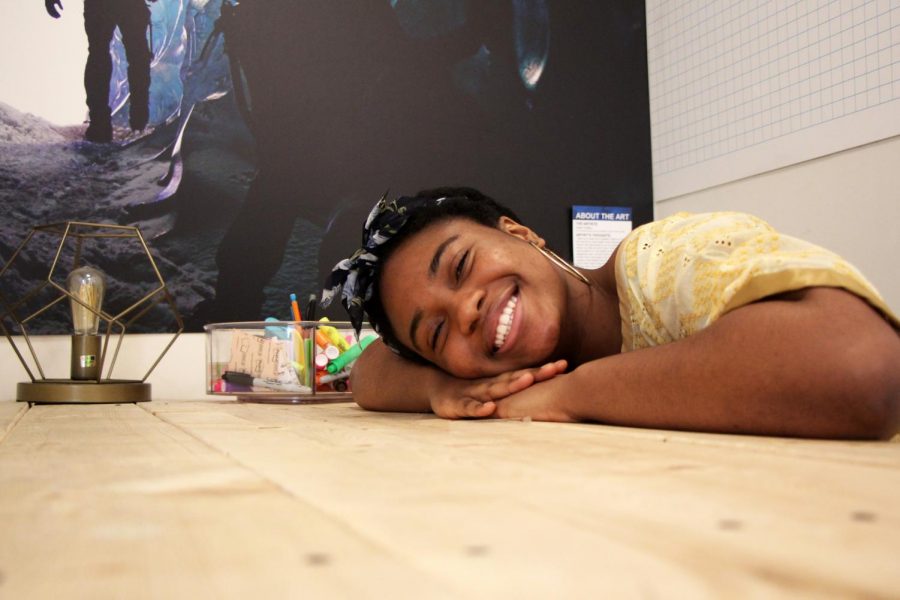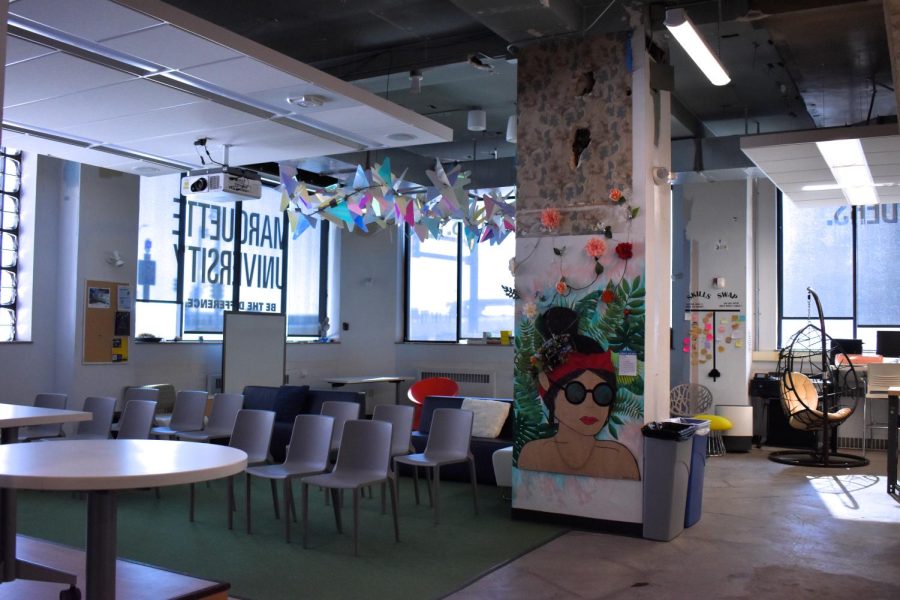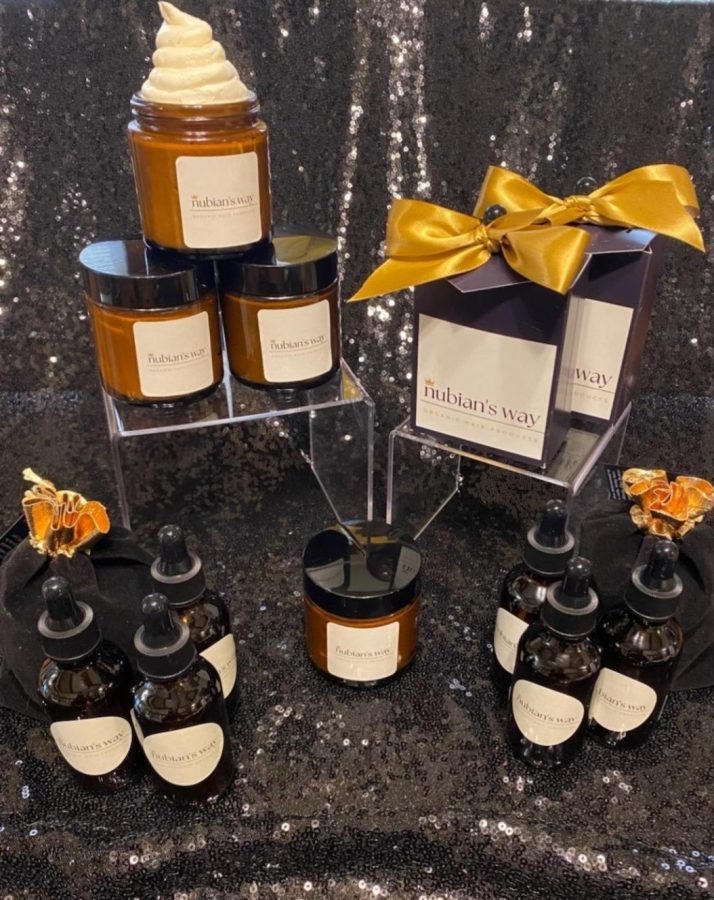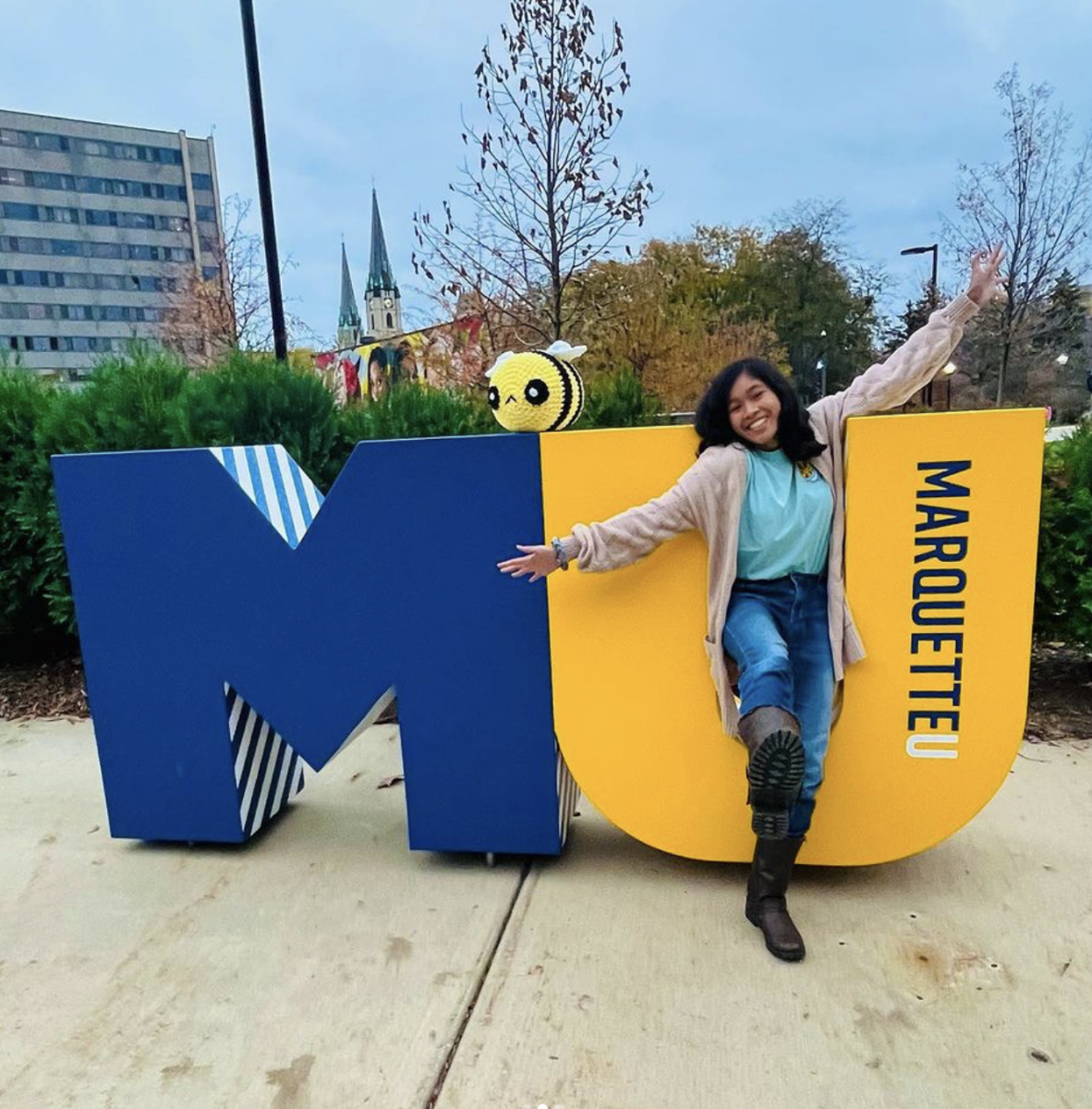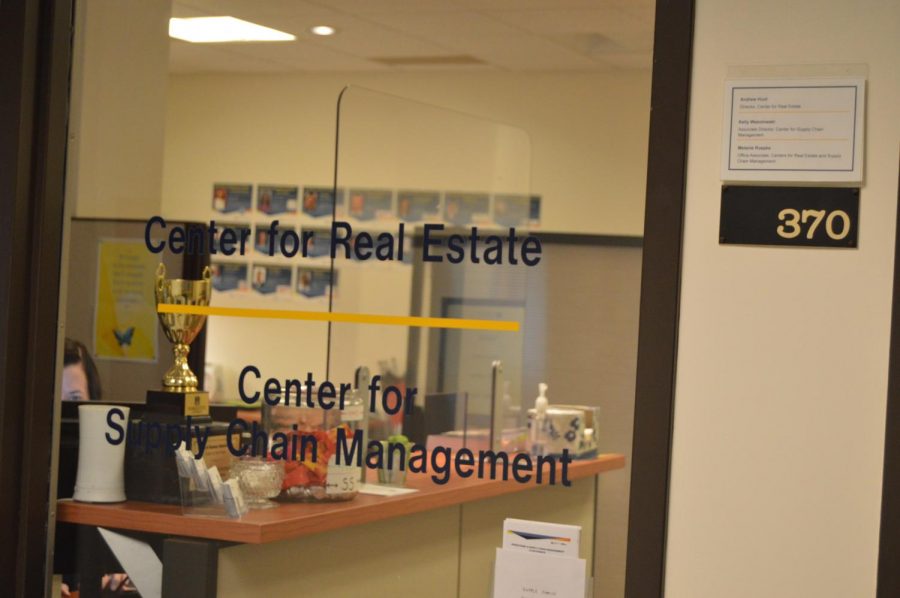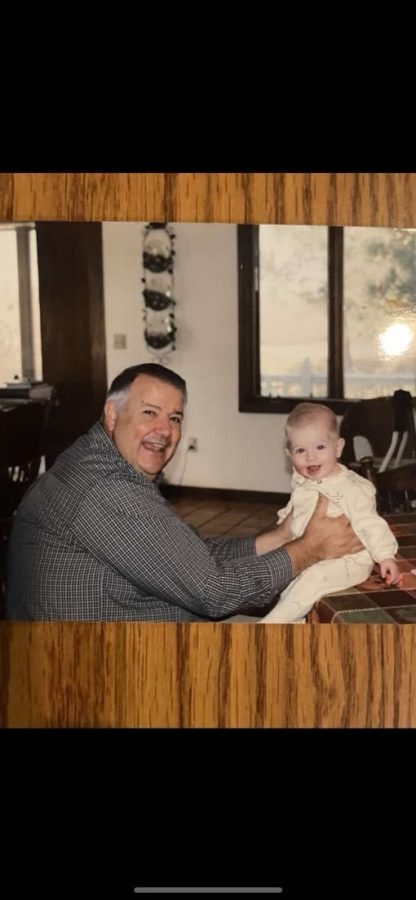Carefully setting her made-to-fit Nigerian clothing items on a table, a smile spreads across Oluwapelumi Oguntade’s face.
The clothes, part of Oluwapelumi’s recently launched fashion line, symbolize a fusion of family and culture. The items serve as a token of the hours of work spent gathering customers, conceptualizing designs, tailoring pieces and completing sales, among other responsibilities.
Oluwapelumi, a freshman in the College of Arts & Sciences, is hoping her fashion line develops into a one-stop-shop for practical, ethnic fashion that reaches customers across cultural boundaries.
The name of the line, OLUOMO WORLDWIDE, has a special meaning.
“(OLUOMO) means a person that is one of a kind,” Oluwapelumi says.
Nigerian fashion consists of lace materials, prints and fabrics, as well as simple elements such as lines and patterns. The most important component, Oluwapelumi says, is color.
Two of those colors are yellow and gold, which can both be used to represent festivity and celebration in Nigerian fashion.
Yellow is also bright, colorful and inviting, she says.
“When I think of the color yellow, I think of glory,” Oluwapelumi says. “I think of something really shiny that’s radiating.”
She hopes her fashion line can spark conversation and bridge the gap between people of different backgrounds. Oluwapelumi says customers outside Nigerian culture don’t need to worry about committing potential acts of cultural appropriation.
“(Appropriation) is not an issue with us,” Oluwapelumi says. “It’s about the intention before you’re wearing our brand.”
As long as customers are familiar with her company’s background and share the vision, Oluwapelumi says she supports and encourages people outside of Nigerian culture to embrace her fashion line.
Her clothing line offers accessory items — like scarves or jewelry — for people who want to try Nigerian fashion.
A current Milwaukee resident and commuter student, Oluwapelumi moved to the United States from Nigeria when she was 9 years old.
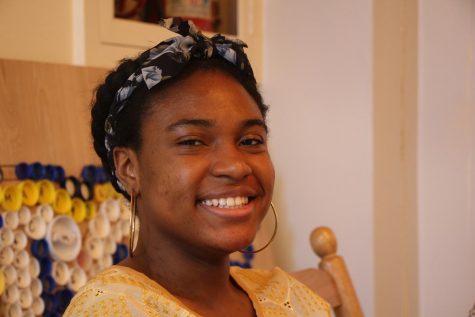
Oluwapelumi Oguntade smiles as she sits in the 707 Hub, where she received resources and mentoring.
Her fashion line embodies all parts of her identity.
“What it means for me is more confidence because there’s sometimes that urge to suppress that part of me,” Oluwapelumi says. “It’s like the West and Africa, they kind of intertwine in me.”
Oluwapelumi remembers being constantly surrounded by beautiful fabrics in her hometown of Lagos, Nigeria. When she moved to the U.S., wearing Nigerian fashion became a weekend activity.
She often provides ideas for fashion pieces to her mom, Iyabo Oguntade, who turns them into reality. Iyabo has been a seamstress for about two decades.
Oluwapelumi started her business in the fall 2018 semester, when she heard the 707 Hub offers free art supplies. She recently won first place in the social business track of the Brewed Ideas Challenge, which provides seed funding to selected students with business ideas.
Megan Carver, associate director of the Kohler Center for Entrepreneurship at the 707 Hub, noticed Oluwapelumi and her mom using the center’s sewing machine in the fall.
“There’s so much passion behind it,” Carver says. “I really appreciate the fact that she’s trying to break into a market with her mom and they’re being true to their cultural heritage and building cultural awareness within campus and then with their customer base as well.”
Iyabo looks upon her daughter with pride. She feels especially attached to certain pieces the pair created — among them, a gold blouse and a yellow dress.
“It really makes me feel proud and hopeful because I have that kind of backbone, that support,” Oluwapelumi says.” (My mom is) always behind me and right beside me and it’s really, really wonderful because she understands what I’m saying.”
The 707 Hub has helped Oluwapelumi with branding, product refinement, financials, ways to sell her product and more, Carver says. Oluwapelumi says she met friends and mentors while working in the space.
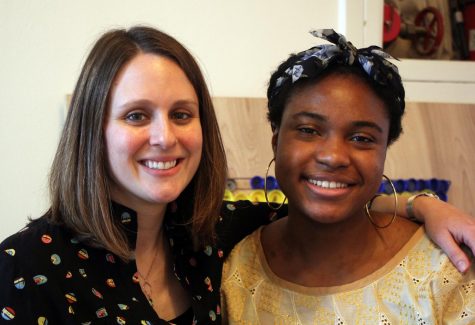
Megan Carver (left) and Oluwapelumi Oguntade have worked together to refine the student’s business idea at the 707 Hub.
“You get more than you’re looking for,” Oluwapelumi says. “You’re just looking for a space to do what you’re working on, but you also meet all these awesome people along the way.”
While the mother-daughter duo started the business with money out of pocket, they’ve been able to generate some customer revenue to fund material and labor costs. Oluwapelumi says she’s currently working on pieces for some Marquette students.
Practicality is an element that sets OLUOMO apart from similar fashion lines, Oluwapelumi says. This includes pockets, longevity of material, versatility and accessibility, such as transforming from casual to business looks.
“Before I started the brand, I did a lot of surveys to make sure what people actually wanted,” Oluwapelumi says. “I’m doing ethnic fashion, but I’m also taking it one step further.”
OLUOMO can be found on social media sites, and Oluwapelumi says she is in the process of creating an Etsy store.
Her 8-year-old brother Leke Oguntade takes many of the photos for the fashion line’s social media accounts.
“I’m happy, and I’m looking forward to be like her, too,” Leke says.
Oluwapelumi says her brother is her biggest cheerleader.
“Sometimes, I might be too busy with things, and he just says the name of our company and I smile, and I’m just like, ‘Yeah, we got this,’” Oluwapelumi says.
She loves trying on the clothes she envisions and her mom creates — it allows her to have fun, dance and be lively, she says.
“I love that it’s really breaking me out of my shell because I used to be more of a reserved person,” Oluwapelumi says. “But it’s really making me more outgoing and start a conversation with people.”

